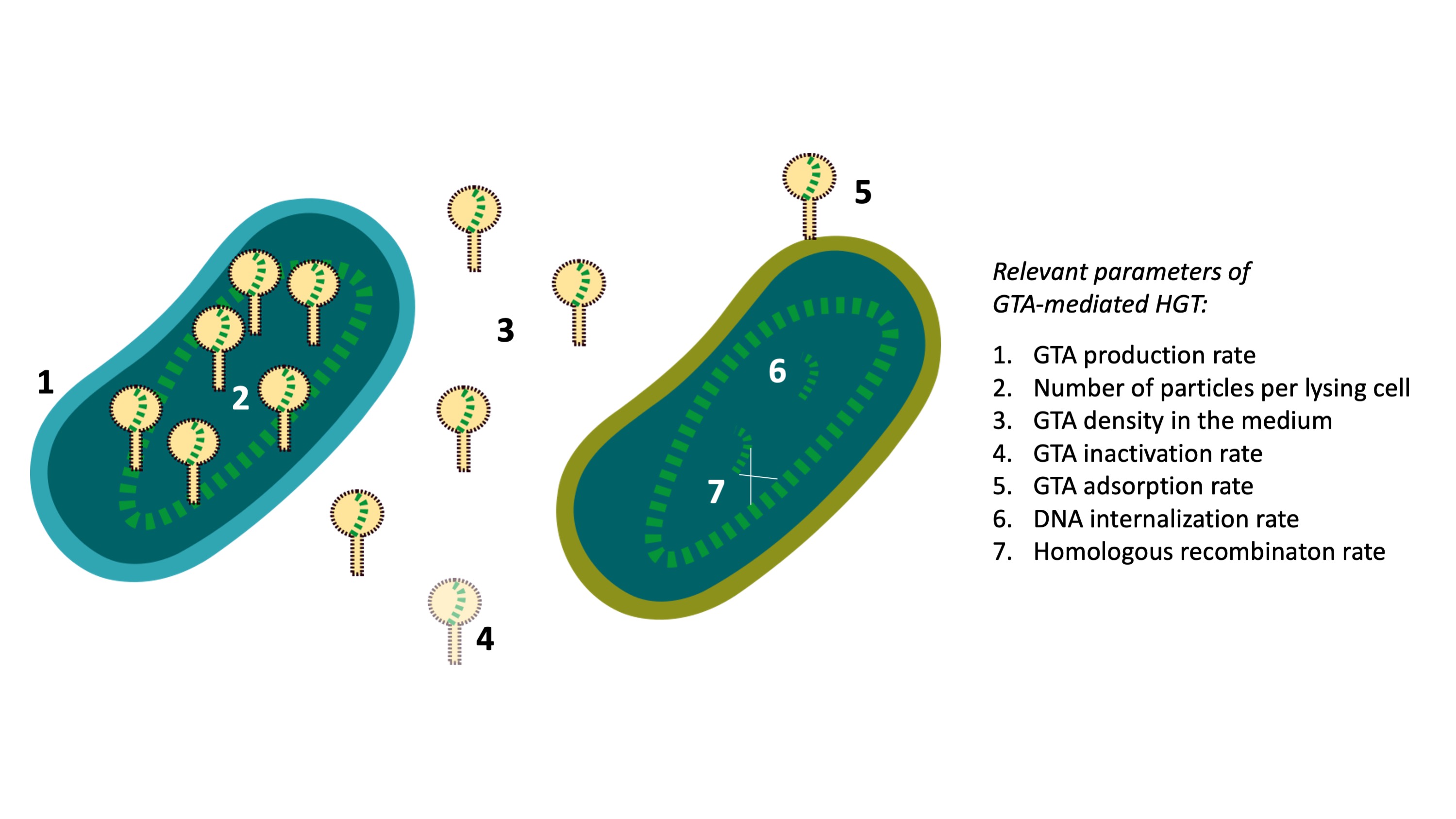Gene Transfer via bacteriophage-like particles
Horizontal gene transfer via bacteriophage-like particles in environmental bacteria
Summary
Horizontal gene transfer (HGT), i.e. the acquisition of genetic material independently of reproduction, is an essential driver of bacterial evolution; it underlies both genome stability and acquisition of new traits. Bacteriophages and Gene transfer agents (GTAs) have been recognized as important HGT vectors, possibly the most prominent in some environments and phylogenetic groups. GTAs are defective lysogenic bacteriophages domesticated by the host to package pieces of its DNA and spread them to conspecifics. In some lineages, GTAs have been vertically inherited for hundreds of millions of years suggesting that they are of great benefit to producers. The contribution of GTAs to bacterial ecological adaptation and evolution is however still elusive and demands to be thoroughly investigated. In this project, we intend to use molecular biology tools, experimental evolution and bioinformatics to elucidate essential aspects of bacteriophage- and GTA-mediated HGT. Specifically, we hope to establish and explore new experimental models of bacteriophage- and GTA-mediated HGT in Proteobacteria; to address evolutionary questions, we will use competition experiments and directed evolution aiming at identifying conditions driving the evolution and maintenance of bacteriophage-like particles in bacterial models.


